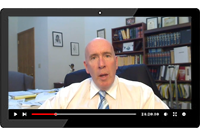Every day in the U.S., thousands of car accidents leave drivers and passengers with serious injuries. But what happens when the crash involves a police car? If you’ve suffered injuries from an accident with a cop car, your situation may be complicated. Can you sue the officer? What if the cop car was responding to an emergency?
The truth is, while officers sometimes have special privileges on the road, they’re not above the law. Understanding when they can be held accountable is key to protecting your legal rights and seeking compensation.
Cops can be at fault too
If you were in an accident with a cop car, liability is determined by the driver who acted negligently. If the officer drove carelessly or recklessly, they can be found at fault. This includes:
- Speeding above the posted limit
- Running a light or stop sign without reason
- Failing to yield to other drivers
- Making wrong-way turns or illegal U-turns
When an officer causes a collision with their emergency lights off, it’s much easier to argue negligence. On the other hand, if the officer had sirens and lights on while pursuing a suspect or responding to an emergency, the law may grant them an exemption.
But police officers need a valid reason to violate the law. Victims have the right to pursue claims when officers act with “reckless disregard,” there is no emergency, or are driving distracted.
Simple Negligence vs Reckless Disregard
The law distinguishes between simple negligence and reckless disregard. Simple negligence is defined as “ordinary carelessness” or a failure to exercise the level of reasonable care someone would use in similar circumstances.
For example:
- An officer glances at their phone and rear-ends another car.
- Driving slightly over the speed limit without lights or sirens.
Reckless disregard is when someone knows their actions create a serious risk of harm and chooses to ignore that risk. Considered more than careless error, reckless disregard is a conscious indifference to safety.
This includes:
- Speeding through a busy intersection without lights or sirens, despite knowing cars and pedestrians are present.
- Making a dangerous U-turn across multiple lanes during rush hour without signaling.
Depending on the state, officers are granted immunity for simple negligence if they properly respond to an emergency call. However, if they act with reckless disregard, that immunity may not apply and they or their department can be held liable.
It’s worth talking to an attorney
Determining who is at fault after a police car accident can be challenging. In some cases, the liable party may be the officer who caused the crash, the police department, or a fleeing suspect.
Because government agencies are involved, filing claims is rarely simple. Strict deadlines, immunity rules, and complex procedures often prevent victims from getting the compensation they deserve. That’s why it helps to have a knowledgeable advocate on your side.
If you’re looking for a serious personal injury attorney in Los Angeles, Brennan Law can:
- Gather critical evidence.
- Determine which party should be held liable.
- Handle all communications with the city or police department.
- Pursue full compensation for medical expenses, lost wages, and pain and suffering.
No one expects to be hit by a cop car, but if it happens, you don’t have to face the system alone. Let Brennan Law fight for your rights so you can focus on what matters most — your recovery and your future.


